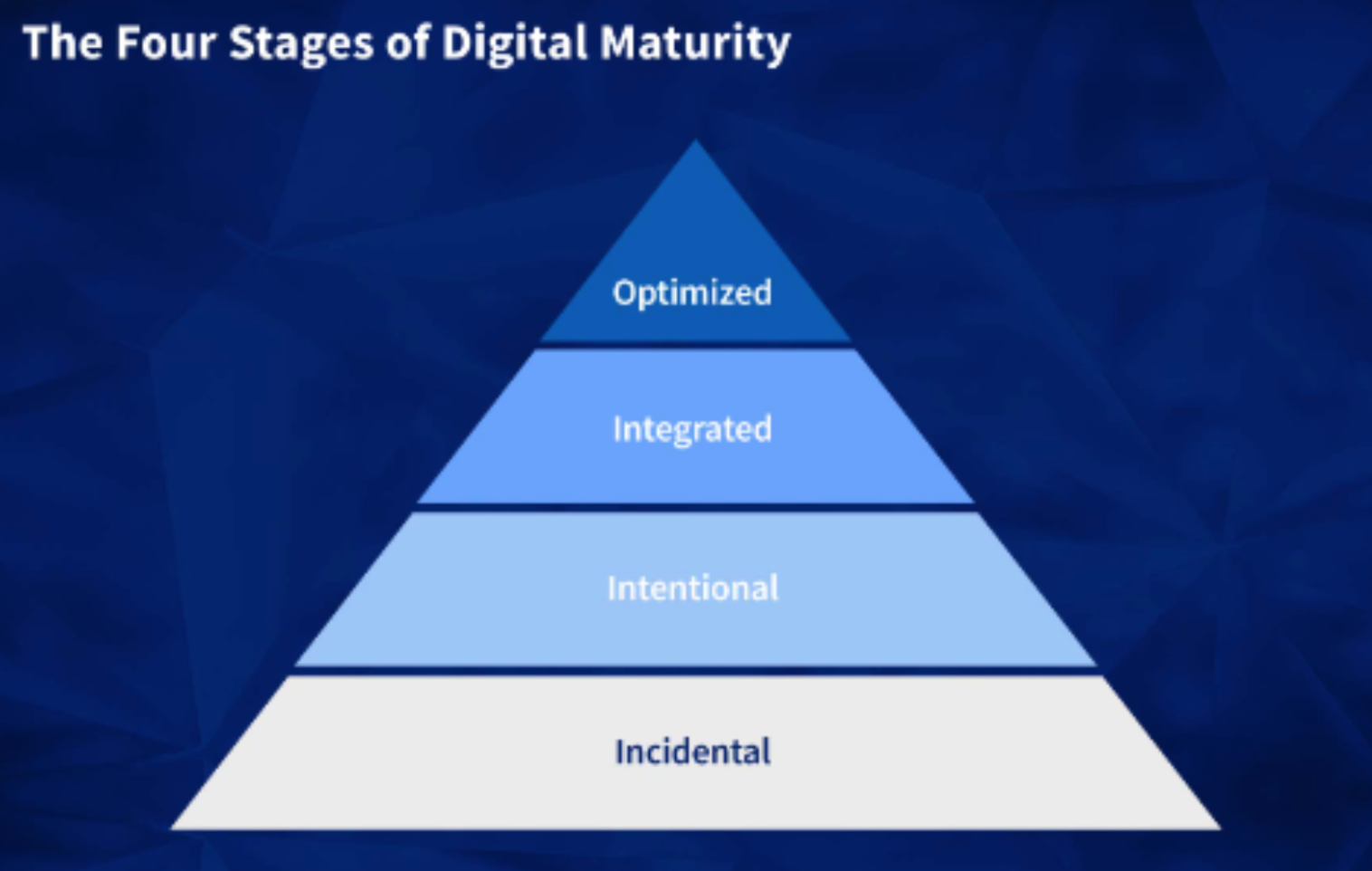Digital transformation services have emerged as a dependable catalyst for business growth in contemporary times. It is no longer just on pen and paper, but rather a reality shaping business and how.
Research and Markets predicts that the global market value for digital transformation is set to reach $1,009.8 billion by 2025. This is a reminder of how immensely the markets will be continuously shaped by every technological innovation introduced to revamp business.
The sooner businesses will start investing in digital solutions for upgrading their business models, the better are the chances that it will begin to boost sales, enhance the user experiences, and unlock the benefits of a more transformational model of operating. However, to know what really works and how to align technology for advantage, it is essential to have a workable blueprint and ensure appropriate investment in technology. By integrating cutting-edge technologies and innovative strategies, these digital transformation services enable companies to optimize their operations, enhance customer experiences, and stay ahead of the competition.
And for every successful digital transformation, there needs to be a digital adoption platform that will help the entire organization come on board with the journey and play their necessary parts in the transformation process.
Digital transformation should be a priority for your business as it boosts efficiency and supports the modernization of operations. But to know its proper worth, it is essential to understand what is worth investing in digitizing your business.
Why measuring ROI is essential for digital transformation services?
And this is where ROI comes in.
Measuring the ROI (return on investment) of digital transformation is essential for quantifying the value derived from strategic changes in customer experience improvements and operational efficiency. It is necessary to decode the strategic success of your digital transformation services’ investments.
Clear metrics provide insights into financial gains through innovation efforts, help in guiding resource allocation, and facilitate investment planning in a better way. Knowing accurately about the ROI on digital transformation is essential as it validates investments, guides resource allocation, and ensures alignment with business goals.
Informed decision-making ensures that resources are directed toward the most impactful and profitable digital transformation services, ultimately enhancing the overall value proposition for customers.
It is important to note that being aware of the ROI on digital transformation initiatives encourages a focus on customer-centric solutions, as understanding the impact of digital transformation on customer satisfaction and experience is critical for driving service improvements.

How do we measure ROI for digital transformation services?
Aligning metrics and KPIs to business goals can be challenging, but it isn’t impossible. Here’s how you can measure your transformation success through ROI:
Defined objectives: Decide what you are looking to optimize through digital transformation. Whether you want to revamp the customer experience, streamline operations, or increase sales productivity with digital adoption solutions, understanding and defining your goals is essential.
Find what is the immediate change that your business needs to adjust to the changing market demands, and start planning your investments strategically into the digital transformation services that fit best.
Baseline assessment (BA): Comparing the before/after is necessary. It gives you the required perspective to focus and strategize. Keep a tab on the current performance before the transformation, and once you have embarked on the journey, keep tracking the results of the changes. Remember that a reliable digital adoption platform needs a suitable investment in technology to work best for your company.
This way, you will have an accurate tracking of the performances of the changes achieved through the digital transformation services. This clear understanding of the initial state allows organizations to measure progress and proceed accordingly.
Plan investments: As per the digital trends and performance evaluation, planning and modifying your assets for successful digital transformation is necessary to decode specific investment areas. This could include increased revenue, reduced operational costs, improved resource allocation, and increased sales productivity with digital adoption solutions.
Calculating the direct and indirect financial benefits your organization has gained from various digital transformation services helps calculate the ROI and further strategize subsequent investments.
Metrics for tracking: Remember that ROI measurement is an ongoing process. These factors can be both tangible and intangible. To know how successful the integration of your digital adoption platforms has been, it is vital to monitor the key metrics continuously.
For a digital transformation service to attain success, it is crucial to measure the performance of each factor that affects it. You must outline your tangible value metrics, like employee productivity, customer satisfaction, and operational efficiency, that will reflect the success or failure of the digital transformation initiatives.
Improved brand perception, increased innovation culture, and enhanced employee morale are some of the intangible benefits derived from the implemented digital transformation services that contribute significantly to overall ROI.
Set a timeframe: Set the period with which the baseline assessment results will be compared. Enhanced data utilization can lead to improved strategic planning and targeted actions, yielding measurable results for successful digital transformation.
When digital transformation is aligned with the business objectives, it helps the organization to innovate and adapt to the changing market dynamics. Well-planned digital transformation services often lead to an enhanced customer experience, which in turn impacts customer loyalty and advocacy.
Quantify financial impacts: Calculating benefits like increased revenue and reduced operations costs helps in justifying the initial investment, determining profitability, and allocating resources effectively.
Assessing these financial impacts also improves resource allocation, providing concrete evidence of the transformation’s financial success and guiding future strategic decisions that will positively impact digital transformation services.

Summing it up
Remember, measuring the ROI of digital transformation isn’t just about numbers; it’s about driving holistic change and unlocking new opportunities.
Digital transformation services facilitate the collection and analysis of vast amounts of data, which empowers businesses to make informed decisions and devise targeted marketing strategies. These data support a deeper understanding of consumer behaviour and preferences, leading to the development of products and services that are better aligned with market demands.
As businesses leverage digital transformation to enhance their capabilities and offerings, they are well-positioned to tap into new opportunities, expand their market reach, and achieve sustainable growth in the dynamic digital landscape.
With the proper procedure to measure the ROI of digital transformation, businesses can embark on a journey that comprises appropriate strategic planning and execution. ROI measurement fosters a culture of innovation and agility, encouraging the continuous development of services that align with evolving market demands.
When you put technology to its best use, it allows businesses to assess the effectiveness of their digital initiatives. It enables them to refine and optimize their services based on real-time data obtained through ROI on digital transformation.



